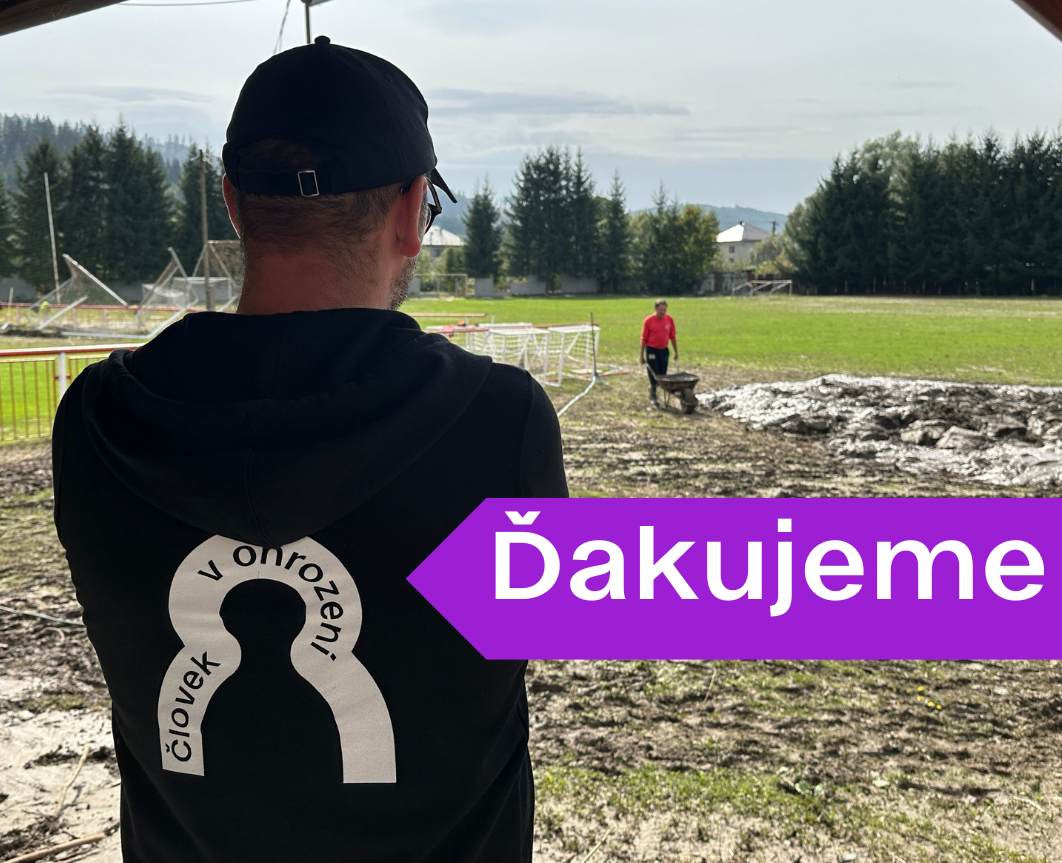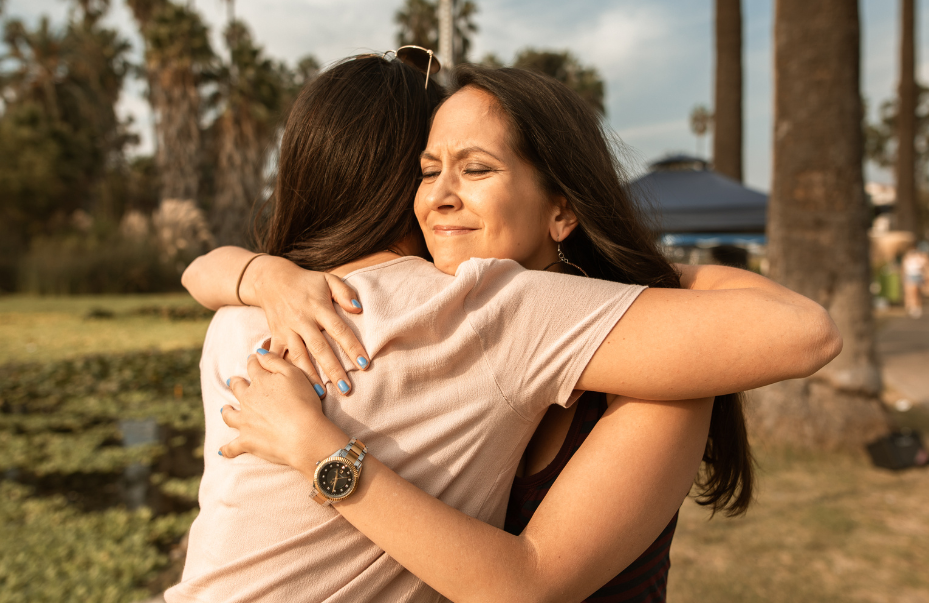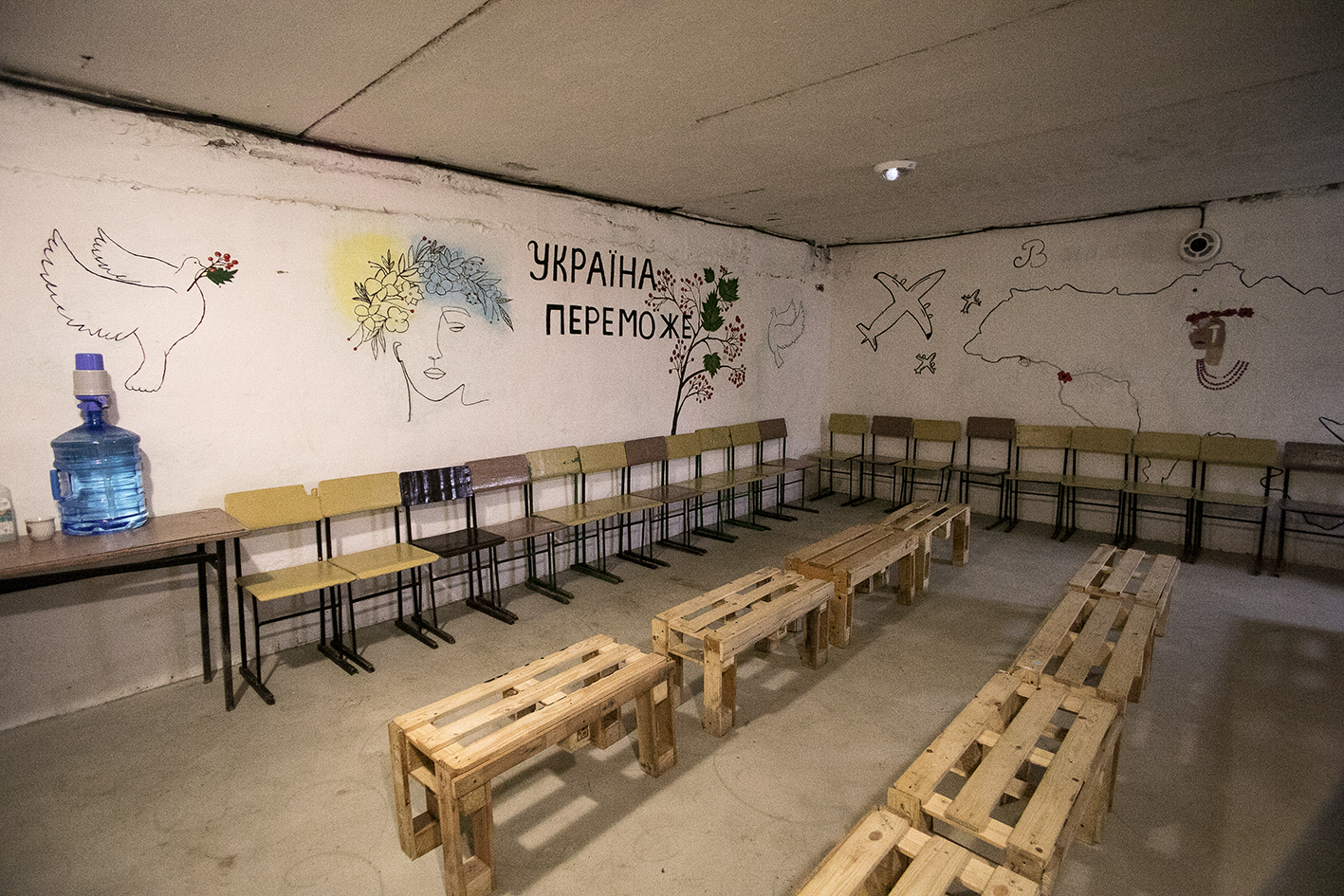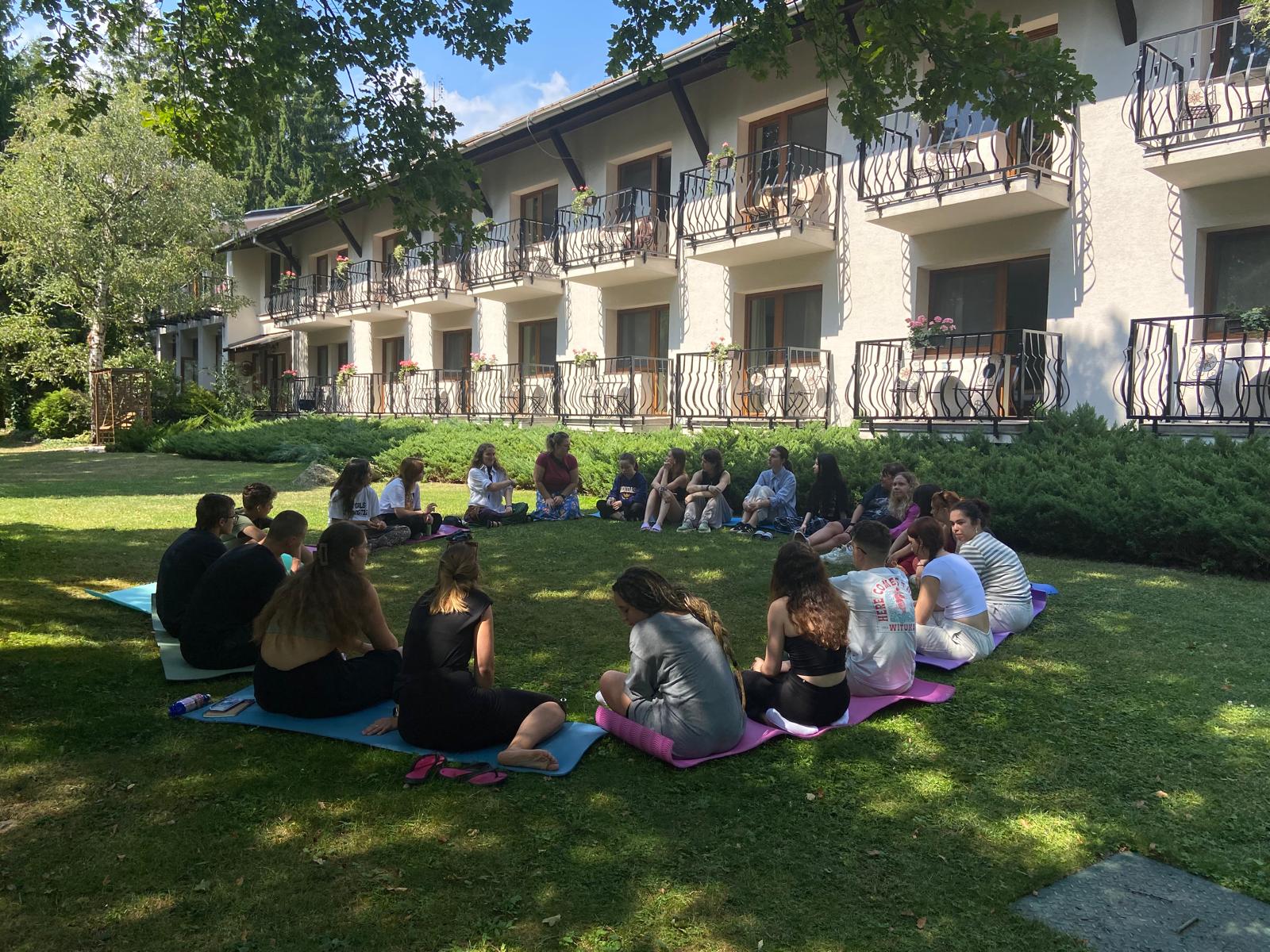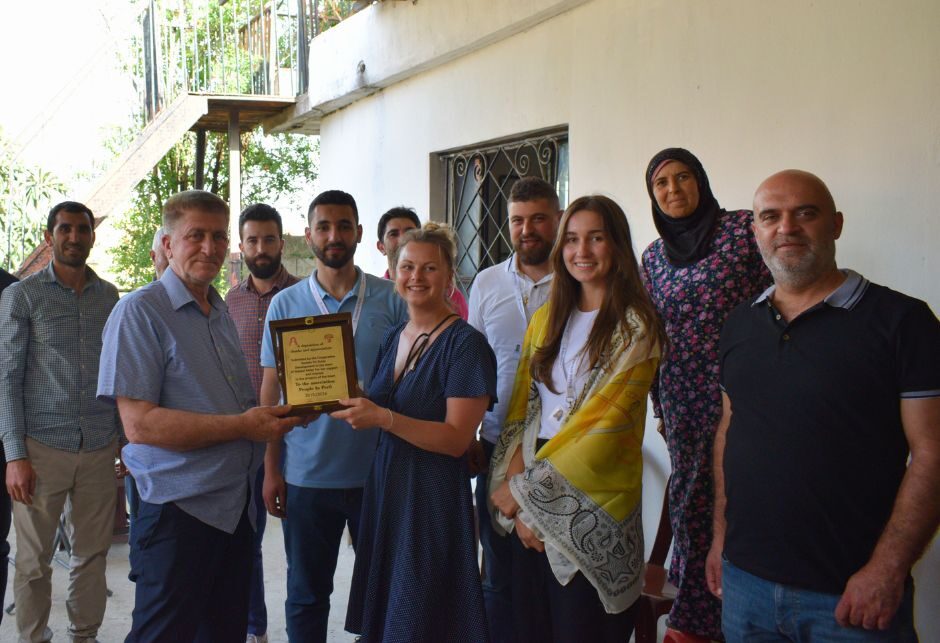We are sending humanitarian aid to Gaza
People in Peril is the first Slovak organisation to send humanitarian aid to the civilian population in Gaza. We have established cooperation with an Egyptian partner organization, thanks to which we will transport food aid worth 30 000 euros to Gaza.
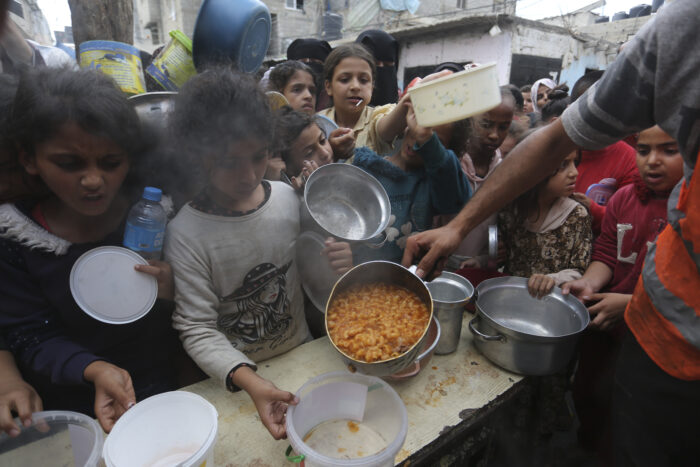
We did not want to underestimate the choice of partner organisation. It was particularly important for us that Misr El Kheir has been providing real aid there for a long time and has worked not only with the Egyptian and Palestinian Crescent, but also with internationally respected organisations such as Doctors Without Borders and UN agencies. “After joint discussions, we have agreed that the first part of our humanitarian assistance will include pure food aid. We are still refining the specific items, but most of the food being sent is food that does not need to be further prepared and cooked, as people often do not have access to gas or electricity. (canned food, biscuits…) The amount we have earmarked for aid can almost exactly fill one whole truckload of food aid. It is 21 tons,” says Marian Cehelník.
Challenges are difficult
Organising the delivery of humanitarian aid to Gaza is quite a challenge. For aid to successfully arrive where it is supposed to, it must meet strict criteria, for example, combining different types of goods on the same pallet is prohibited, each item must be individually wrapped, the material must not be marked with the organisation’s logo, etc.
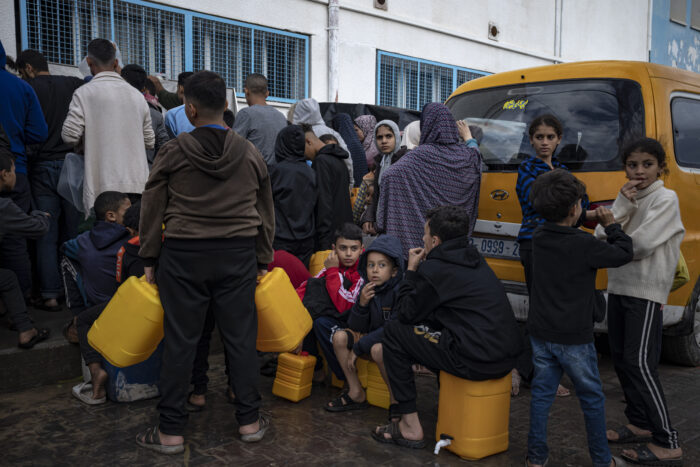
“Sometimes seemingly small things make it difficult to send help. We know of a case where medical aid was sent, but there were metal objects in it, like wheelchairs and IV stands, so they refused it. Even tents could not be delivered, because they too have steel bars, so they did not allow any of that into Gaza. The process is really complicated. In order to work in Egypt, we also need various permits from ministries and institutions, and this is something that also slows down the whole process considerably,” says Marián Cehelník.
Who gets into Gaza?
All humanitarian aid trucks are loaded in Cairo and sent to Rafah, where they are unloaded on the spot according to needs. Absolutely no outsiders are allowed into Gaza at the moment.
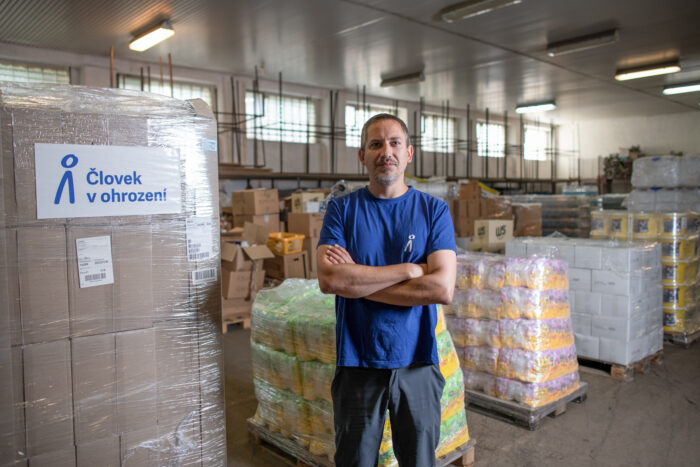
“The security measures are very strict indeed,” says Marián Cehelník. “The only people who enter Gaza, apart from the Israeli army, are truck drivers who take aid there. The rules are set so that they have to be alone in the vehicle, they can’t have any phone, camera, recording device. The chauffeur with the vehicle goes through scanners that scan the whole truck. There are two scanners – Egyptian and Israeli. Then the vehicle goes into Gaza. There is a Qatari logistics base where the goods are unloaded, the driver turns around and goes back. The humanitarian aid is taken over by the Palestinian Red Crescent and distributed on an as-needed basis. The logistics base is managed by UNRWA, the United Nations Relief and Works Agency for Palestine Refugees in the Near East.”
The sick and injured have exceptions
“No one is getting into Gaza and they are only moving the seriously sick and wounded out of Gaza, really only the emergency cases and not many of them. Supposedly a patient can be accompanied by two family members. Patients and their escorts stay in Sinai, where they have built a field hospital and set aside two buildings to accommodate relatives, but there are already so many of them that they are said to be living in tents.”
If anyone else does go to Gaza, the general arrangements are as follows: Everyone must be clearly marked, in a marked vehicle, not missing a helmet, a vest, and most importantly – they must have agreed this in advance with both sides of the conflict. They need to be sure that you are a third neutral party who is helping and covered by international law.
Marián Cehelník
We want to help in the long term
The need for humanitarian aid in Gaza is several times greater than the amount that can reach the area. 30,000 euros is the first amount our partner organisation in Egypt will deliver food aid for. We have also launched a campaign through which anyone can help the people of Gaza. With the funds raised, we will increase the volume of aid from Slovakia.
In addition to the public collection, we intend to apply for calls for proposals if they are announced by various international foundations and organisations. We see that the aid needs there are huge and that they will not disappear overnight, and we are interested in helping in the long term. The specific type of assistance will also depend on how the situation develops. If we can get there over time, we would like to channel resources to longer-term activities.

